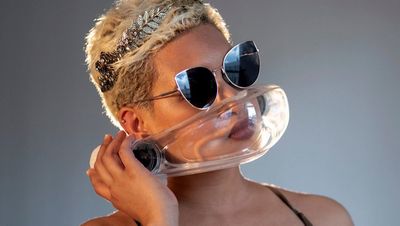Go outside, close your eyes, and inhale. Do your lungs fill with fresh air – or are you taking a big deep breath of nasty fumes?
A new crop of tech startups is emerging to meet a growing demand for individualized clean air.
It depends, of course, on where you live – and for many people, the situation is worsening. According to a recent analysis by two Carnegie Mellon economists, particulate air matter pollution rose 5.5 percent in the U.S. between 2016 and 2018, resulting in almost 10,000 premature deaths.
Despite the urgency of the problem, there seems to be no indication that civic leadership will be protecting our air any time soon. The United States left the Paris Agreement recently, Brazil is still letting the Amazon burn and Australia lacks a national strategy for tackling air pollution, despite its recent catastrophic bushfires. China's deceptive coronavirus communication only underscores the point that safeguarding the public's health can take a backseat to politics and power.
But people still need to breathe, and now a new crop of tech startups is emerging to meet a growing demand for individualized clean air. At the recent Consumer Electronics Show, I saw futuristic masks, smart goggles and self-contained apparatuses promising to filter the bad air away.
Obviously, a dollar store surgical mask wasn't going to cut it anymore.
"We have seen a huge amount of interest and a growing awareness of the issues with masks and respirators," says AO Air co-founder Dan Bowden. "The more regularly someone wears a mask or a respirator, the deeper our Atmos solution resonates with them. Leading markets have been Korea, China and, unexpectedly, Thailand."
Lined up for a Summer 2020 launch, the AO Air filter fits across your mouth from ear to ear – kind of like Geordi LaForge's Star Trek: The Next Generation eye sensors, but across your jaw line. The translucent mask continually pumps cool air for about 5 hours per charge and will cost $350 USD.
"Soon, we'll have private schools selling themselves on the air quality of the building."
"There is a movement towards individuals taking control over their own health, but also we see a great movement towards individuals taking control over the impacts that they have on the wider world," Bowden says. "We believe that the deeper systemic change has always come from humans working together and not being reliant upon high powers."
Bowden says the company wants to help the individual citizen, clean up the public building air ("factories, hospitals, workplaces") and, most interestingly, collect pollution metrics data via the masks. "We are looking forward to hearing how this information can be used in creative ways," Bowden adds. It is yet unclear how the data will be shared and how proprietary the information will be for AO Air and its competitors.
Scientific artist Michael Pinsky is taking a more experiential approach to raise awareness of the problem. In 2017, he launched traveling pollution pods, these giant, interconnected rooms recreating the air quality of several cities from London to Los Angeles. His exhibit has been on near constant tour, hitting the New York Climate Action Summit, the recent COP25 in Madrid, and other major events.
When I visited, I could handle being in the New Delhi air quality pod for only about 20 seconds. It made my eyes water and burn.
"Now you have new, 8 – 10 million British pound houses being built with premium air systems," Pinsky says. "Soon, we'll have private schools selling themselves on the air quality of the building." I mention my own children, whose schools we selected based on ratings and rankings. I could easily see "indoor air quality" being another metric. Perhaps another lever of privilege.
Pinsky gives a wily chuckle.
"The legislators have to get on top of it – or air will be privatized like space or our schools," he says.
"Clean air is a right," he adds. "Everyone should have it."
